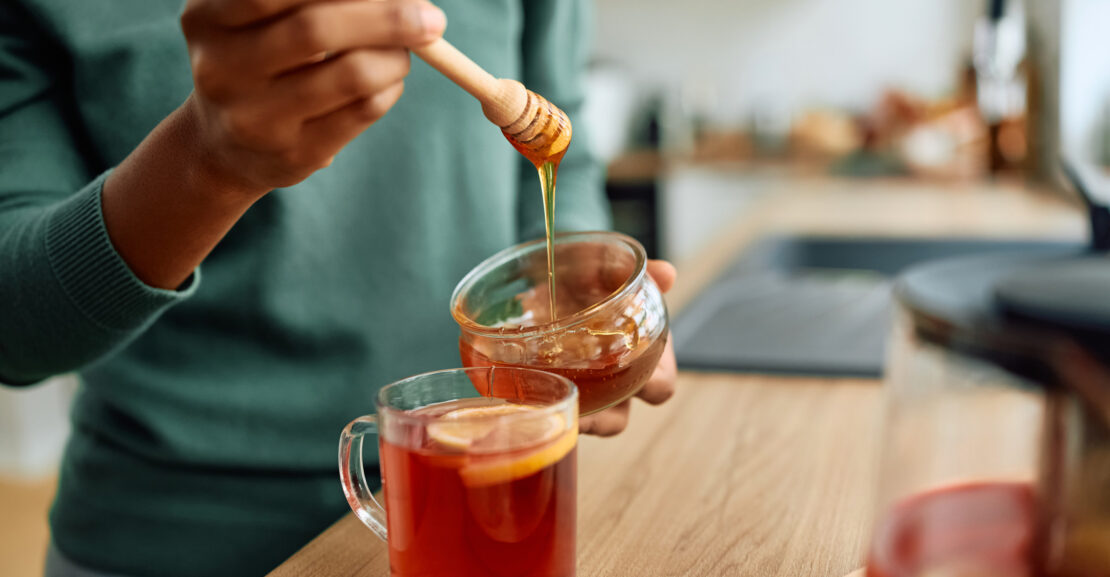Honey is often touted as a superfood because of its antioxidant properties, but not all types of honey are created equal or offer the same health benefits.
Why It Matters
Honey, which is produced by honeybees, is a natural sweetener. It is often considered a healthier alternative to other sweeteners, such as sugar, and is used in myriad ways.
However, some experts claim that not all honey is beneficial, particularly those that are sold at grocery stores.
Fabián Torres, director of business development at SICPA and honey expert, warned against consuming diluted honey in a report by Gloucestershire Live, claiming that “fake” honey that has been diluted is poor quality and could have negative health impacts, like raising blood sugar.
What to Know
So many options for honey are available. One store can sell countless varieties of honey. Some honeys are labeled by the type of plant the bees making the honey have pollinated, such as buckwheat honey, wildflower honey, and clover honey.
Others are diluted with more sweeteners, negating the honey’s health benefits.
A stock photo of a person adding honey to tea.
Drazen Zigic/Getty
Why Most Honey on Shelves Isn’t What You Think
Ferhat Ozturk, a professor with the University of Texas at San Antonio, project director of HONEY Pathway and expert with the American Beekeeping Federation, told Newsweek that through his research analyzing honey samples, he found that honey from local beekeepers is four times more biologically active than grocery store honeys.
Antibacterial, antioxidant, and antimicrobial properties, among others, raise a honey’s biological activity level. High biological activity honeys have more medicinal potential when compared to those with low biological activity, Ozturk said.
“About one-third of honeys in the international trade market are fraud or adulterated,” he said.
Some honey sold at stores has actually been diluted by high fructose corn syrup or rice syrup, Beth Czerwony, an outpatient dietician for the Center for Human Nutrition, told Newsweek.
“Manufacturers will end up diluting down honey,” she said. “So it’s a cheaper product, and when you taste the sweetness, you get fooled.”
Although it’s always a good idea to look at labels, the ingredients used to dilute the honey might not always be listed.
By diluting honey, the manufacturers also dilute the health properties “because you’re not getting the full concentration of those antioxidants and polyphenols that you get from raw honey,” Czerwony said.
Czerwony said if someone wants the health benefits from honey, they should buy it from a farmer’s market or a local beekeeper.
Raw Honey vs Pure Honey: What’s the Difference?
Raw honey is bottled after it is strained from the honeycomb. This is typically the honey that people think of when it comes to health benefits. It also isn’t pasteurized. Czerwony says children younger than 3 shouldn’t consume unpasteurized honey, but it’s safe for adults.
Pure honey is honey with no other additives. Regular honey can include additives, like flavoring, additional sugar, or water.
How to Spot ‘Fake’ Honey at the Store
The biggest indicator of diluted honey is going to be a lower cost, Czerwony said. Pure honey also will have a very dark, amber color.
“The lighter honey, I would suspect, is diluted down,” Czerwony said.
Honey can crystallize because of its low water content, and Czerwony said this is a sign that the honey hasn’t been diluted.
The best way to find honey with health benefits is to purchase it from a local beekeeper, Ozturk said. The darker the color of the honey, the higher the biological activity.
“If you really need to buy honey for medicinal reasons, grocery store honeys should be avoided,” Ozturk said. “Most of the time those are either heated or they are processed.”
Some organic markets carry dark, local, and natural honey, and Ozturk said if someone is seeking medicinal honey at a grocery store, this is the variety they should be.
“Those honeys will be preferable over light-colored honeys,” he said.
What Experts Say About Processed Honey
Diluted honey will have minimal health benefits.
“If you’re looking at it as a sweetener, it may not bother you,” Czerwony said. “But if you’re looking for actual anti-inflammatory properties, make sure you’re diligent about having pure honey.”
Even in its raw form, honey is concentrated sugar, Czerwony said.
“Don’t have tons of it throughout the day,” she said. “It has calories, and it can affect blood sugar negatively. 2-3 tablespoons is what we say is the maximum based on the amount of sugar.”
What People Are Saying
Czerwony told Newsweek: “It is a very good, whole food you can implement into your diet, but there can be too much of a good thing. Be aware of your health conditions.”
Torres said in a report by Gloucestershire Live: “These ‘fake’ and poor quality honey, with additives, are more like syrups than honey as such. In the best case, they add sugar, which makes them very harmful caloric bombs for children or elderly people.”
What Happens Next
Consistently consuming pure honey could have a positive impact on health, Czerwony said.
It’s more common to find raw honey at farmer’s markets. There’s also a good chance a local beekeeper is selling honey as well.

